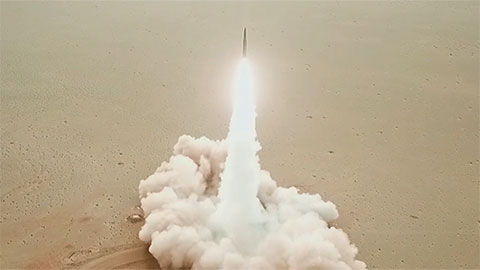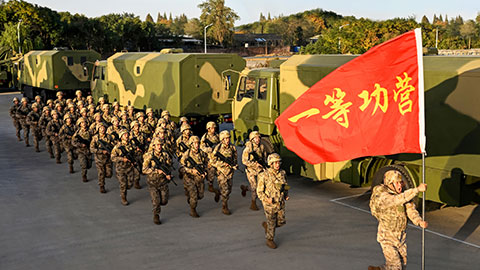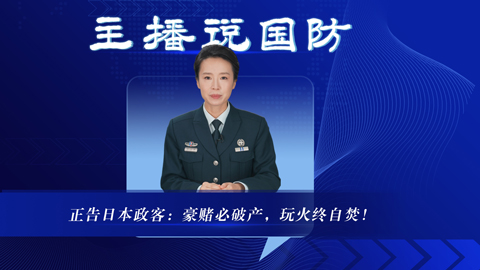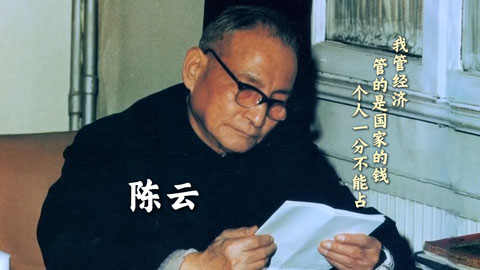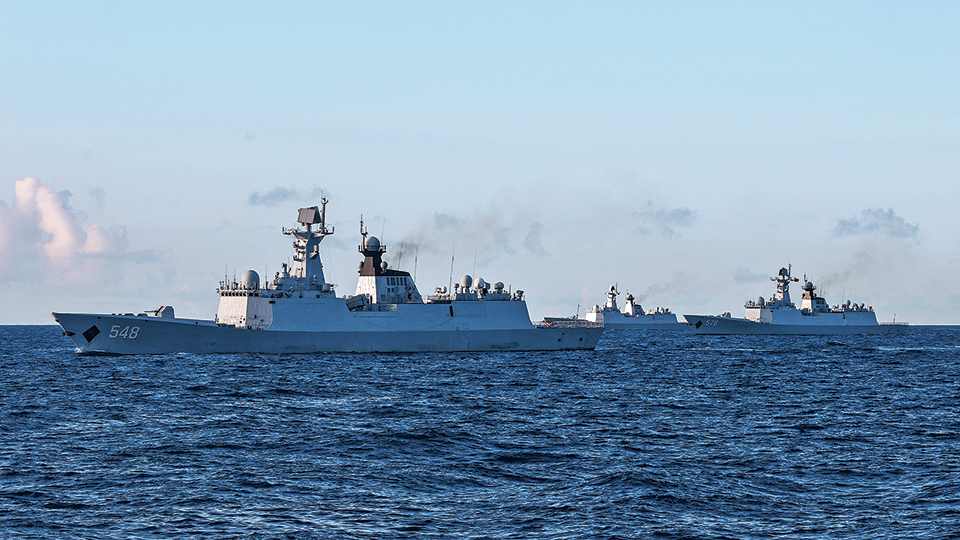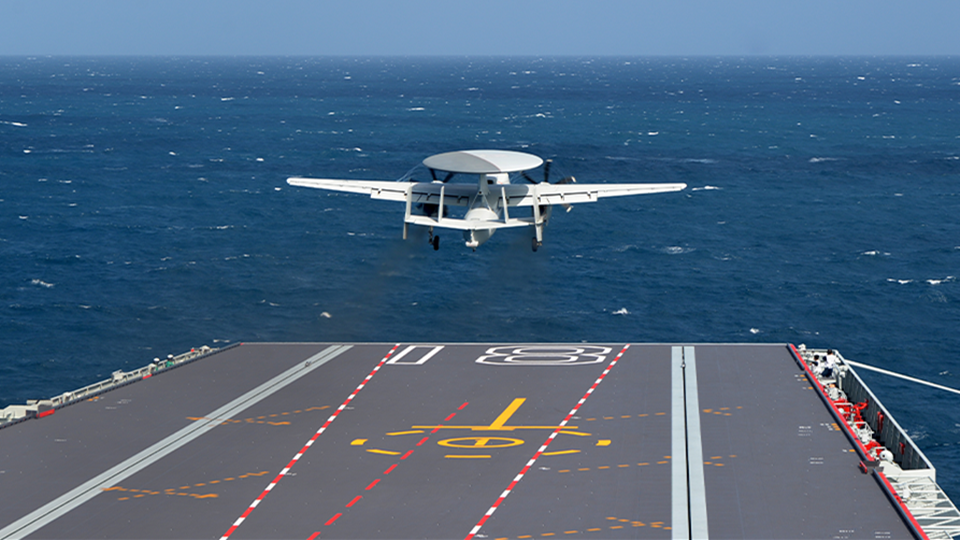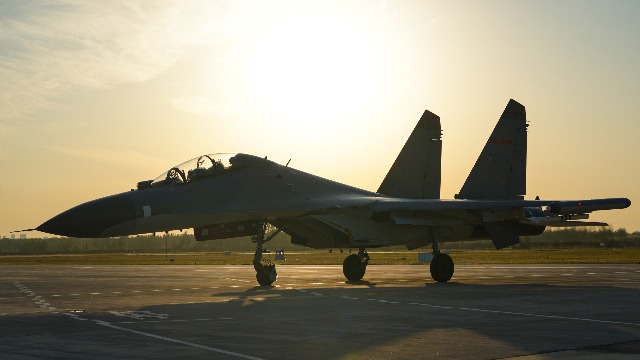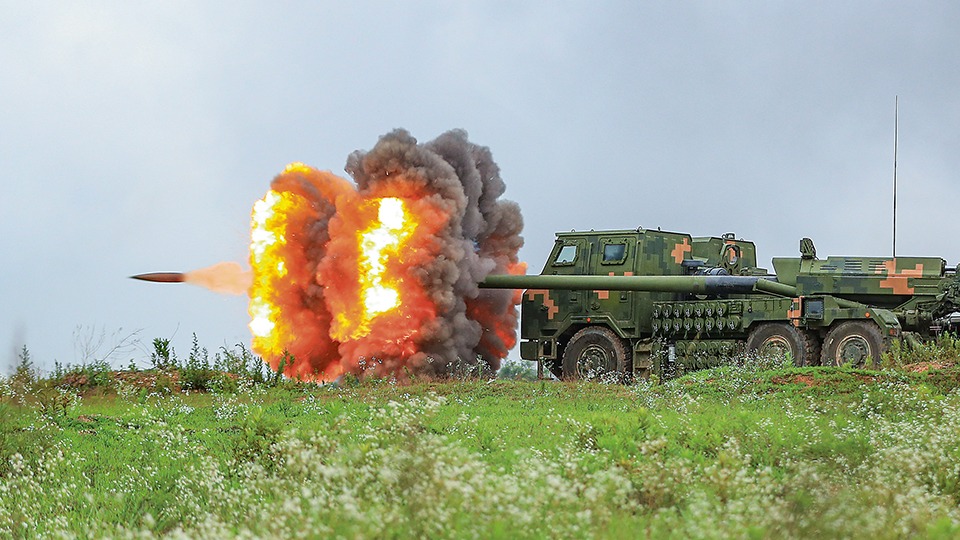By Jiang Xinyu
蒋新宇
This year marks the 75th anniversary of the founding of the People's Republic of China. In the past 75 years, the world has undergone tremendous changes, China has seen significant development, and China's relationship with the world has experienced dramatic adjustment. China has brought peace, development, and cooperation to the world.
今年是中华人民共和国成立75周年。75年来,世界大变化,中国大发展,中国同世界关系大调整,中国为世界带来了和平、发展、合作。
"A wise man knows what to or not to do." The maxim left by Chinese philosopher Confucius serves not only as a code of conduct for the Chinese people but also guides China's actions when engaging with the world. While we recognize China's contributions to the world, it is important to ask what China has not done to it.
“君子有所为而有所不为”,这句中国先贤孔子的箴言,不仅是中国人的行事准则,也在中国的对外交往中得以体现。除了看到中国为世界带来的贡献之外,“中国没有对世界做什么”同样值得追问。
China has never exported war to the world.
中国始终没有对世界输出过战乱
When the world was overshadowed by the clouds of the Cold War after WWII, China proposed the Five Principles of Peaceful Coexistence in response to the call of the times for peace and development. It has adhered to an independent foreign policy, taken active steps to achieve peaceful coexistence with other countries, and tried hard to improve its external environment, particularly in its immediate neighborhood.
二战后,冷战阴云笼罩世界。在此背景下,中国提出和平共处五项原则积极回应时代呼唤,并坚持独立自主的外交路线,积极谋求同世界各国和平共处,努力改善外部环境尤其是周边环境。
Unlike Western countries, China's development is defined by peace – as a super-large-scale country, it has achieved peaceful development without ever initiating a single war of aggression against or plundering any resources from other countries.
与西方国家崛起的历史过程不同,和平是中国发展的最大特点。中国没有对外发动过任何侵略战争,没有掠夺他国资源,却实现了一个超大规模国家的和平发展。
China has consistently upheld the concept of "partnership over alliance" in its foreign relations. Alliances are exclusive groups focused on political and military cooperation against a common foe, whereas "partnership" is focused on making friends. China believes that major countries should compete in the speed of making friends rather than seeking foes.
在对外关系中,中国始终坚持“结伴不结盟”理念。结盟更关注政治、军事合作,具有封闭性和排他性。结盟是“找敌人”,结伴是“交朋友”。中国相信大国关系发展比的是“交朋友”的结伴速度,而不是“找敌人”的结盟速度。
While China has a strong military, it prefers to settle disputes through dialogue and consultation. When dealing with regional conflicts, it always stands on the side of peace and dialogue, condemning all violence targeted at civilians and providing humanitarian assistance within its capacity to countries suffering in war.
作为军事大国,中国更加注重通过对话与协商解决争端。在处理地区冲突时,中国始终站在和平一边,站在对话一边,旗帜鲜明地谴责一切针对平民的暴力,力所能及地为身处战火的国家提供人道主义援助。
China has never exported terrorism to the world.
中国从未对世界输出过恐怖主义
Currently, religious extremism has become the spiritual core of international terrorist organizations. As a unified country with numerous ethnic groups, the Chinese government implements an ethnic policy featuring equality, unity, and mutual assistance. It respects and protects the freedom of religious belief and the customs of minority groups, builds positive and healthy religious relations, and maintains harmony among different religions and social communities, so as to unite both religious believers and non-believers to the largest extent.
当前,宗教极端主义已成为国际恐怖组织的精神内核。作为一个统一的多民族国家,中国政府实行各民族平等、团结、互助的民族政策,尊重和保护少数民族宗教信仰自由的权利和风俗习惯,构建积极健康的宗教关系,维护宗教和睦与社会和谐,最大限度团结广大信教公民和不信教公民。
China has adopted multi-layered and multi-dimensional measures to combat terrorism, including enhancing domestic security and promoting social governance and information construction. It has severely cracked down on terrorist activities and cut off their funding sources to eradicate the breeding ground for terrorism.
在打击恐怖主义方面,中国采取多层次、多方位的措施,包括加强国内安全、推动社会治理与信息化建设。通过严厉打击恐怖活动,斩断其资金来源,根除潜在的恐怖主义滋生土壤。
Moreover, China has actively participated in international counter-terrorism cooperation in the endeavor for joint global governance. Within multilateral frameworks such as the Shanghai Cooperation Organization, China has signed counter-terrorism agreements and strengthened information sharing and cooperation with other countries, which not only heightens their vigilance against terrorism but provides robust support for preventing and combating terrorist activities.
此外,中国积极参与国际反恐合作,倡导全球共治的理念。在上海合作组织等多边框架下,中国与各国共同签署反恐协议,加强信息共享与合作。这种合作不仅提高了各国对恐怖主义的警惕,也为防范和打击恐怖活动提供了强有力的支持。
China has never exercised hegemonism or power politics in the world.
中国没有对世界施行过霸权主义、强权政治
In today's international political arena, hegemonism and power politics are still commonly seen, but China as a major country has never exercised them on other countries, nor has it ever engaged with other countries from "the position of strength". Instead, it advocates equality, mutual benefit, and win-win cooperation.
在当今国际政治舞台上,霸权主义和强权政治仍屡见不鲜。然而,中国作为一个大国,始终没有对别国施行霸权主义和强权政治,也不会动辄从“以实力地位出发”与他国相处,而是倡导平等互利、合作共赢。
China upholds multilateralism and calls for resolving disputes through dialogue. It plays an active role in international organizations such as the United Nations to push the improvement of global governance mechanisms, and participates in international affairs in a constructive attitude, opposing any unilateral actions. Through multilateral cooperation platforms like the Belt and Road Initiative, it has established close economic ties with many countries, reflecting respect and equality and promoting regional and global economic development.
中国坚持多边主义,主张通过对话解决争端。中国在联合国等国际组织中积极发挥作用,推动全球治理机制的完善,以建设性态度参与国际事务,反对任何单边行为。通过共建“一带一路”倡议等多边合作平台,中国与众多国家建立了紧密的经济联系,体现了尊重与平等,促进了区域和全球经济的发展。
China's foreign policy is centered on peace and development. It upholds the principle of non-interference in the internal affairs of other countries and mutual respect and understanding among nations. This diplomatic philosophy has helped maintain regional and global peace and stability and won China widespread support in the international community.
中国对外政策的核心是和平与发展,始终秉持不干涉他国内政原则,倡导国家间相互尊重与理解。这种外交理念不仅有助于维护地区和世界的和平与稳定,也使中国赢得广泛的国际支持。
China has never violated international rules.
中国没有破坏过国际规则
As a signatory and participant in various important international treaties, China has never shirked its responsibilities as a major country, nor has it ever torn off treaties or withdrawn from international organizations. Rather, it always actively and efficiently fulfills its responsibilities, living up to its status as a major country.
作为多个重要国际条约的签署国和参与国,中国从未推卸过大国责任,从未主动“毁约退群”,而是积极、高效履责,展现大国担当。
Being the first country to sign the Charter of the United Nations, China has always adhered to its purposes and principles, endorsed and maintained the authority and role of the UN, actively participated in UN peacekeeping operations, and supported the UN in playing a central role in international affairs.
中国是第一个在联合国宪章上签字的国家,始终恪守联合国宪章宗旨和原则,支持维护联合国权威和作用,积极参与维和行动,支持联合国在国际多边事务中发挥核心作用。
China has also played an active part in implementing the Paris Agreement. Its solemn commitment to “striving to bring its carbon emissions to a peak before 2030 and become carbon-neutral before 2060” shows its leadership and sense of responsibility in global climate governance.
中国在《巴黎气候协定》中也扮演了积极角色,作出了“力争2030年前实现碳达峰、2060年前实现碳中和”的庄严承诺,展现了其在全球气候治理中的领导力和责任感。
The world today is facing both opportunities and hopes as well as variables and challenges. Seventy-five years is only a prologue. In the future, China will more responsibly face the opportunities and challenges in solidarity and cooperation with the rest of the world, making united efforts to build a community with a shared future for mankind and create a better world for all.
当今世界,既充满机遇和希望,也存在变数和挑战。75年只是序章,未来的中国将以更加负责任的态度,与世界各国团结合作,共同面对机遇与挑战,共建人类命运共同体,共创更加美好的世界。
Editor's note: Originally published on china.com.cn, this article is translated from Chinese into English and edited by the China Military Online. The information and opinions in this article do not necessarily reflect the views of eng.chinamil.com.cn.







